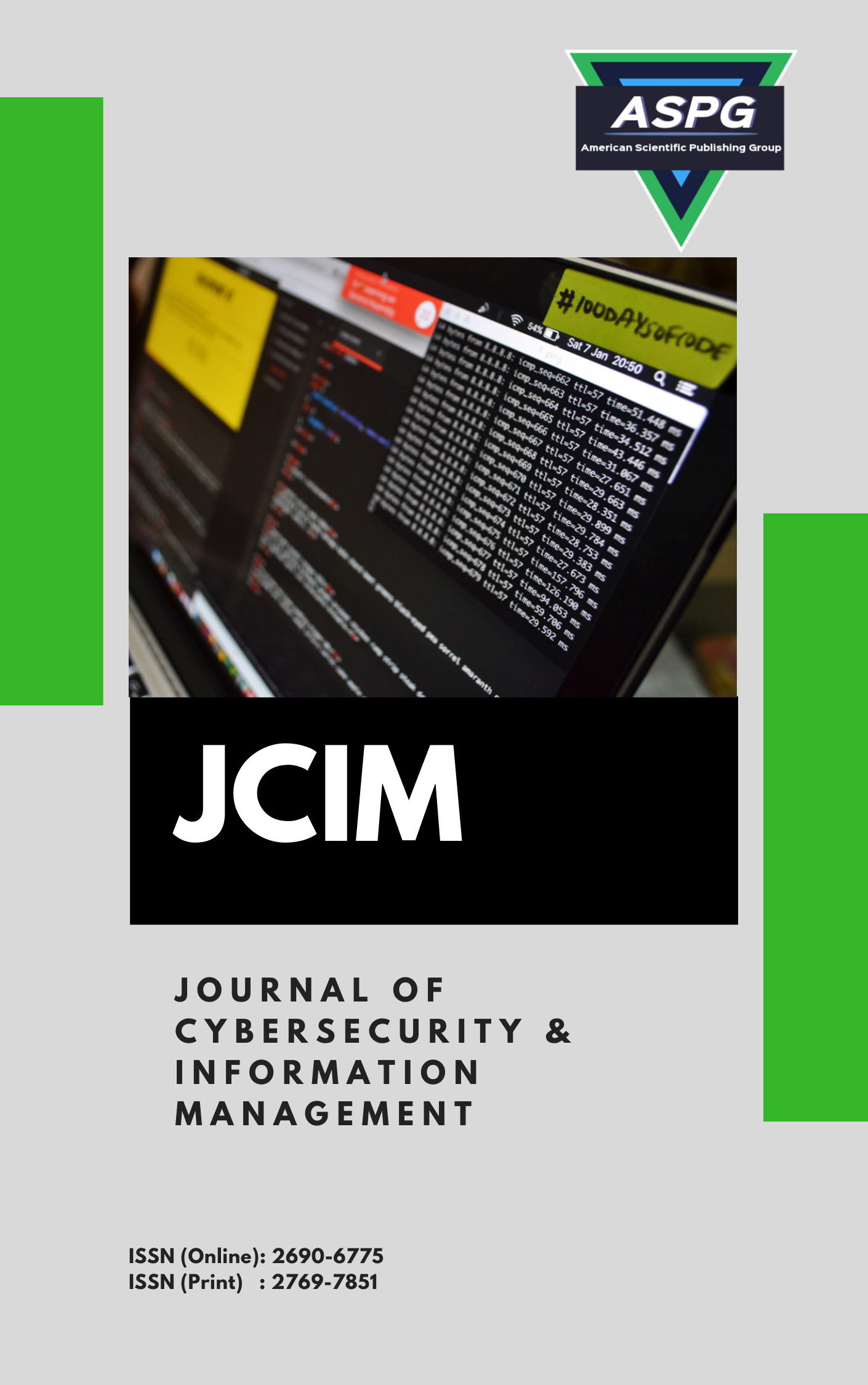

Volume 8 , Issue 2 , PP: 84-94, 2021 | Cite this article as | XML | Html | PDF | Full Length Article
Ahmed Aziz 1 * , Noura Metawa 2
Doi: https://doi.org/10.54216/JCIM.080205
Precision medicine is an innovative approach to healthcare that relies on the use of genomic data, electronic health records, and other types of medical data to develop personalized prevention, diagnosis, and treatment strategies for patients. The use of artificial intelligence (AI) in precision medicine has the potential to improve patient outcomes and reduce healthcare costs, but it also raises significant privacy concerns. This paper provides a comprehensive review of the privacy nightmares associated with the use of AI in precision medicine. We examine the potential risks and threats to patient privacy, including the use of personal data for unintended purposes, the risk of data breaches and hacking, and the potential for discrimination and bias. We also analyze the legal and ethical implications of using AI in precision medicine, including issues related to informed consent and data ownership. Our investigation highlights the need for strong data protection regulations and ethical frameworks to safeguard patient privacy in the age of AI in precision medicine. As the use of AI in precision medicine continues to expand, the paper presents a road for future directions for protecting patient privacy, including the use of privacy-preserving machine learning algorithms and the adoption of privacy-enhancing technologies.
Artificial Intelligence , Privacy , Healthcare , Precision Medicine
[1]. Yu, K. H., Hart, S. N., Goldfeder, R., Zhang, Q. C., Parker, S. C., & Snyder, M. (2017). Harnessing big data for precision medicine: infrastructures and applications. In PACIFIC SYMPOSIUM ON BIOCOMPUTING 2017 (pp. 635-639).
[2]. Ziller, A., Passerat-Palmbach, J., Trask, A., Braren, R., Rueckert, D., & Kaissis, G. (2020). Artificial Intelligence in Medicine and Privacy Preservation. Artificial Intelligence in Medicine, 1-14.
[3]. Huang, L. C., Chu, H. C., Lien, C. Y., Hsiao, C. H., & Kao, T. (2009). Privacy preservation and information security protection for patients’ portable electronic health records. Computers in Biology and Medicine, 39(9), 743-750.
[4]. Zhang, Aiqing, and Xiaodong Lin. "Towards secure and privacy-preserving data sharing in e-health systems via consortium blockchain." Journal of medical systems 42, no. 8 (2018): 140.
[5]. Sahi, M. A., Abbas, H., Saleem, K., Yang, X., Derhab, A., Orgun, M. A., ... & Yaseen, A. (2017). Privacy preservation in e-healthcare environments: State of the art and future directions. Ieee Access, 6, 464-478.
[6]. Pascual, D., Amirshahi, A., Aminifar, A., Atienza, D., Ryvlin, P., & Wattenhofer, R. (2020). Epilepsygan: Synthetic epileptic brain activities with privacy preservation. IEEE Transactions on Biomedical Engineering, 68(8), 2435-2446.
[7]. Zhao, J., Chen, Y., & Zhang, W. (2019). Differential privacy preservation in deep learning: Challenges, opportunities and solutions. IEEE Access, 7, 48901-48911.
[8]. Saleh, Y. N., Chibelushi, C. C., Abdel-Hamid, A. A., & Soliman, A. H. (2020). Privacy preservation for wireless sensor networks in healthcare: State of the art, and open research challenges. arXiv preprint arXiv:2012.12958.
[9]. Deebak, B. D., Al-Turjman, F., Aloqaily, M., & Alfandi, O. (2019). An authentic-based privacy preservation protocol for smart e-healthcare systems in IoT. IEEE Access, 7, 135632-135649.
[10]. Sharma, N., & Bhatt, R. (2018). Privacy preservation in WSN for healthcare application. Procedia computer science, 132, 1243-1252.
[11]. Wang, W., Chen, L., & Zhang, Q. (2015). Outsourcing high-dimensional healthcare data to cloud with personalized privacy preservation. Computer Networks, 88, 136-148.
[12]. Chenthara, Shekha, Khandakar Ahmed, Hua Wang, Frank Whittaker, and Zhenxiang Chen. "Healthchain: A novel framework on privacy preservation of electronic health records using blockchain technology." Plos one 15, no. 12 (2020): e0243043.
[13]. Kaissis, G. A., Makowski, M. R., Rückert, D., & Braren, R. F. (2020). Secure, privacy-preserving and federated machine learning in medical imaging. Nature Machine Intelligence, 2(6), 305-311.
[14]. Sengupta, J., Ruj, S., & Bit, S. D. (2020). A comprehensive survey on attacks, security issues and blockchain solutions for IoT and IIoT. Journal of Network and Computer Applications, 149, 102481.
[15]. Mabkhot, M. M., Al-Ahmari, A. M., Salah, B., & Alkhalefah, H. (2018). Requirements of the smart factory system: A survey and perspective. Machines, 6(2), 23.
[16]. Wen, Q., Gao, Y., Chen, Z., & Wu, D. (2019, May). A blockchain-based data sharing scheme in the supply chain by IIoT. In 2019 IEEE International Conference on Industrial Cyber Physical Systems (ICPS) (pp. 695-700). IEEE.